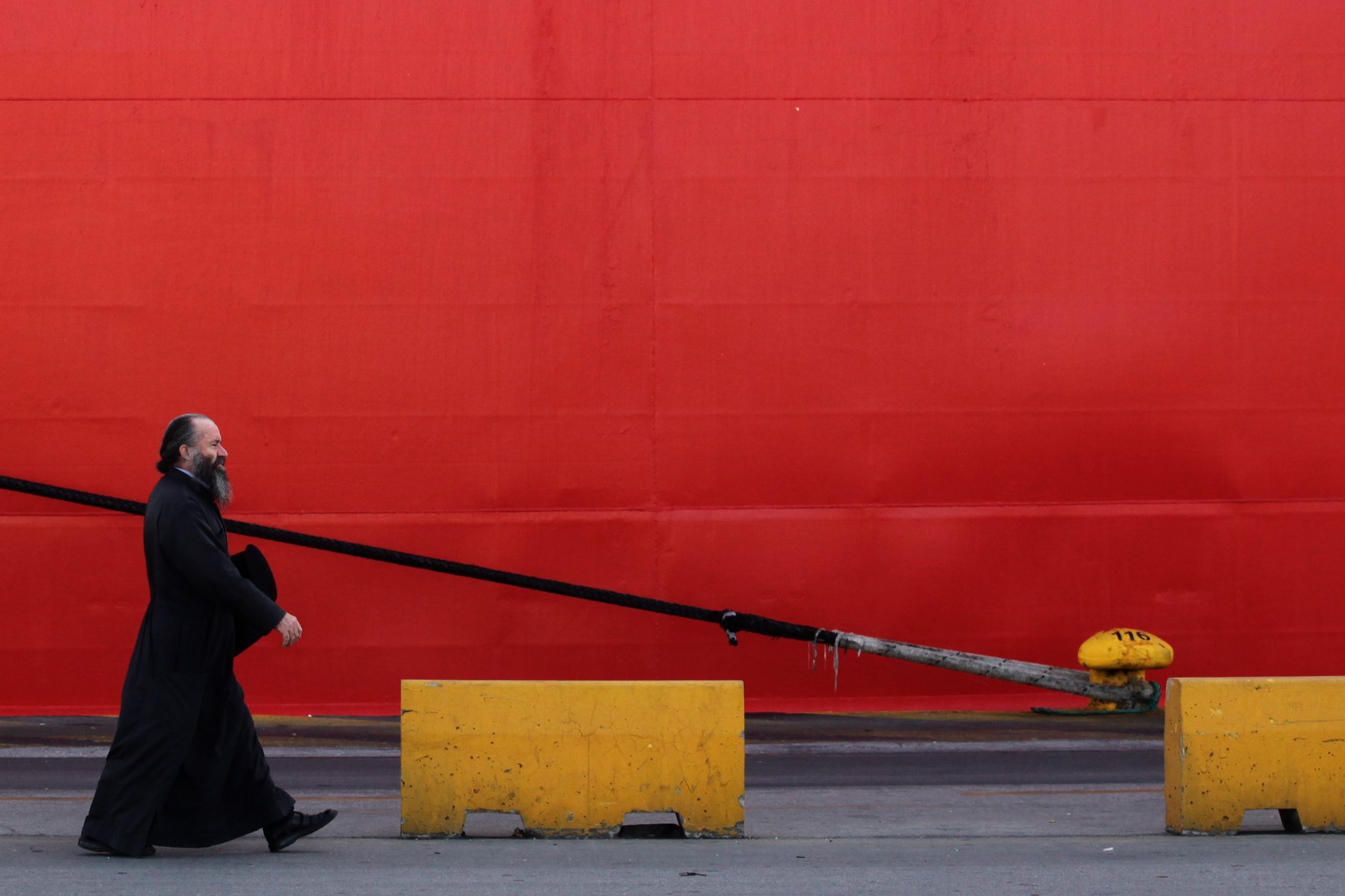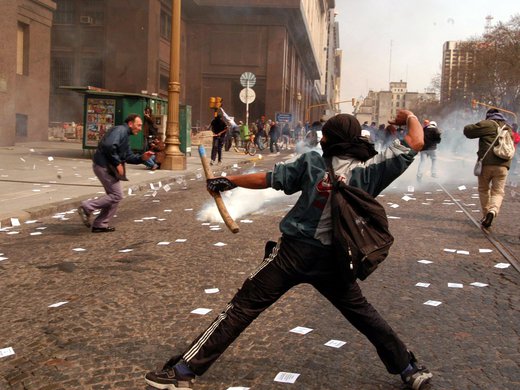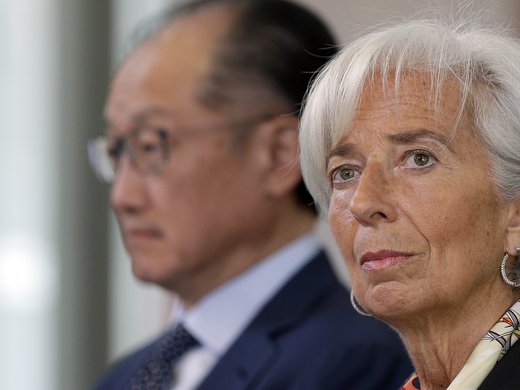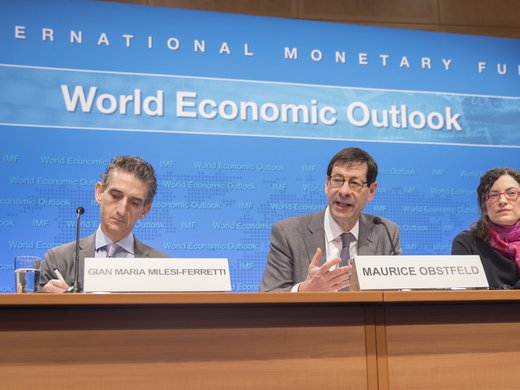The Brexit referendum and the election of Donald Trump denote a new political reality.
These developments constitute a major challenge to the liberal international order constructed after the defeat of Nazism in 1945 and strengthened after the collapse of the Soviet system between 1989 and 1991. As with every challenge, today’s politics pose an opportunity to rethink how multilateral institutions can and should reinvent themselves.
The shocks of the last year should not have come as a complete surprise. The signs of decay were already there before the political earthquake. In the immediate aftermath of the intense financial shock of 2008, fear pushed a substantial and successful effort at international coordination. But then the angst diminished, normalization set in and countries started to interpret their interests as diverging. Instead of multilateralism in trade, bilateral deals, already increasing before the financial crisis, proliferated. By December 2015, the World Trade Organization (WTO) concluded that the Doha Round of negotiations had failed.
Brexit and Trump have shifted the emphasis. The “art of the deal” is a fundamentally bilateral approach, one that largely ignores the complexity of an interconnected world. The United Kingdom hopes to conclude better trade deals without the European Union. Trump’s argument against multilateralism is that openness led to other countries exploiting the United States, and that in a series of bilateral negotiations the power of the United States can be effectively deployed to get better terms.
The new environment is quite different from the old: whereas multilateralism was traditionally conducted through negotiations largely hidden from the public, the new order is emerging under an intense glare of publicity. That glare makes it more difficult to achieve outcomes that will benefit most participants.
There are three distinct ways in which multilateral governance institutions have historically operated. The first, and possibly the most attractive way initially, although it is uncertain in terms of its legal status, is a judicial or quasi-judicial role in arbitrating disputes between countries. There are many cases that look as if they require arbitration: trade disputes, or debates — often associated with trade disputes — about whether currencies are unfairly valued so as to produce a subsidy for exporters.
The new emphasis on sovereignty in the United Kingdom, and elsewhere in Europe where “sovereignists” confront “globalists,” pushes back against this type of arbitration. In the past, the United States used the WTO dispute settlement mechanism as an explanation of why trade had to remain open: George W. Bush had imposed a 30 percent steel tariff, but then in 2003 the WTO ruled against it and the imposition was lifted.
Currency misalignment was a much more difficult issue for international settlement and, in the most important cases — with Japan in the 1980s or with China in the 2000s — the International Monetary Fund backed away from formal declarations that a currency was deliberately undervalued.
The second style of multilateralism involved institutions acting as sources of private advice to governments on policy consistency and on the interplay between policy in one country and those in the rest of the world: explaining and analyzing feedbacks and spillovers, and offering policy alternatives. That sort of consultation — rather than a formal arbitration procedure — was the main vehicle for discussion of currency undervaluation issues in the 2000s.
The essence of this kind of advice is that it is private. It is like speaking with a priest in the confessional. The outcome may be that behaviour or policy changes, but the outside world will not really understand the reason why or the logic that compels better behaviour.
The third way in which multilateralism historically functioned was as a public persuader with a public mission. British Prime Minister Gordon Brown liked to use the phrase “ruthless truth-telling” or “speaking truth to power” with regard to the advice of multilateral institutions. There is an increasing recognition of the limits of secret diplomacy and behind-the-scenes advice. Societies cannot be moved unless there is a genuine consensus that they are moving in the right direction. The backlash against globalization is fed by a climate of suspicion: experts, economists, international institutions are not trusted.
This third style of action looks more appropriate than the secretive processes of the second in an age of transparency, when the digital sphere looks less secure, when secrets leak, when WikiLeaks flourish. Now it is unwise to assume that anything is secret. Former diplomats publish indiscreet memoirs. Officials tweet about what they are doing.
The accessibility of information creates a fundamental dilemma. Policy advice is invariably quite complicated. Spillovers and feedbacks require a great deal of analysis and explanation, and cannot easily be reduced to simple formulations.
Should international institutions be more like judges, or priests or psychoanalysts, or persuaders? No longer is any one of the traditional roles, on its own or by itself, credible. But multilateral institutions will also find it impossible to take on all three roles at once. Judges do not usually need to embark on long explanations as to why their rulings are correct. If they just act as persuaders, maintaining a hyperactive Twitter account, they will merely look self-interested and lose credibility. But if the judges are secret — as at the World Bank’s International Centre for Settlement of Investment Disputes — they might be more efficient (as measured by the gains arising out of their rulings) but will lose legitimacy.
It is easy to see why the institutions that successfully built the stability of the post-1945 order might be despondent in the face of apparently insuperable challenges. But there is a way out that harnesses the new technologies, and that allows for a successful mediation of disputes that threaten not only to divide but also to impoverish the world.
The post-crisis world is one in which ever-larger and more frequently updated quantities of data are available. In the past, we needed to wait for months or years before we could conclude accurate assessments of the volume of economic activity or of trade. Now, real-time data on a much broader set of measurable outcomes is available. Some analysts such as Yuval Noah Harari see data becoming the religion of tomorrow. Managing and publishing data in accessible and intelligible ways can be a critical way of forming the debate about the future and how individuals, societies and nations interact. Instead of acting as judges, multilateral institutions can become purveyors of the costs and benefits of alternative policies. To do so, they need to work on ways of letting data speak.



